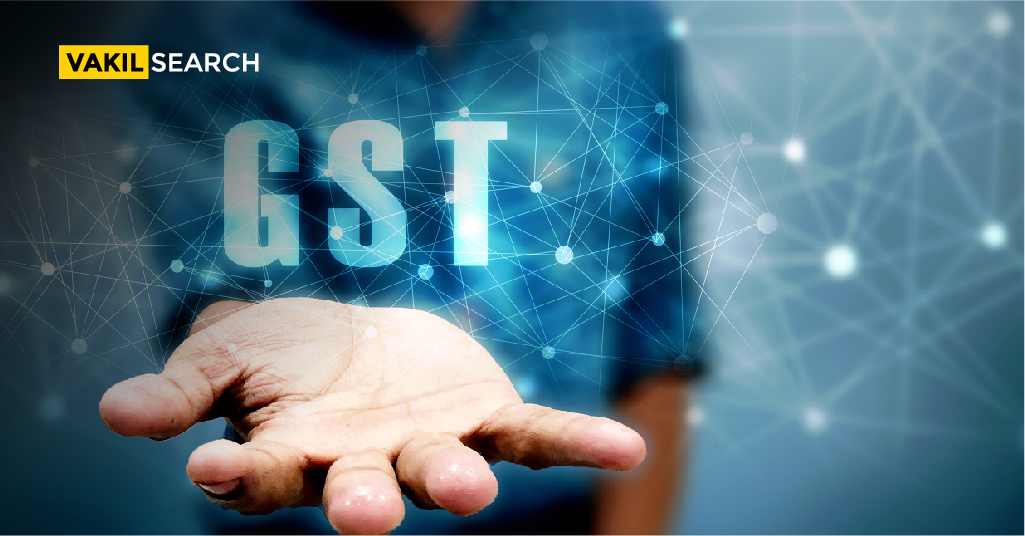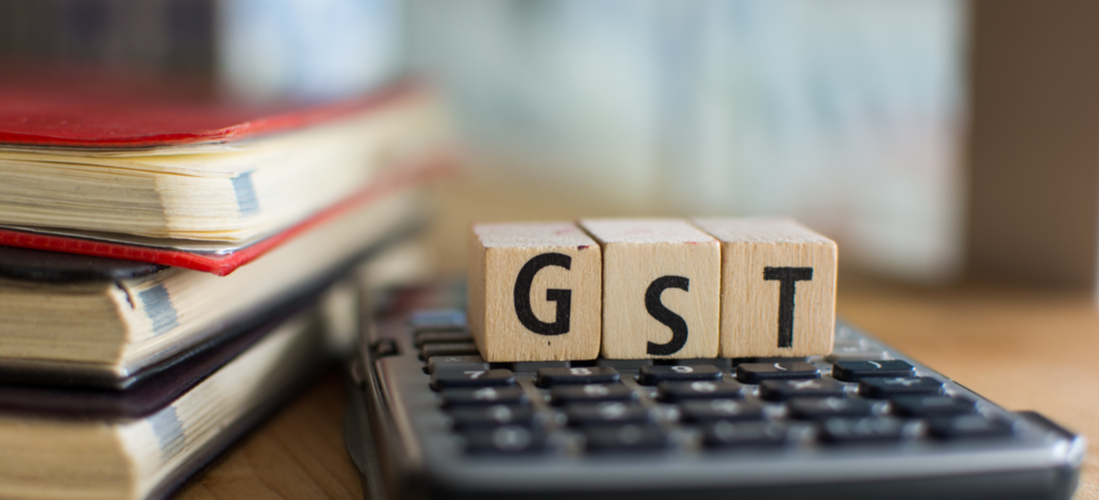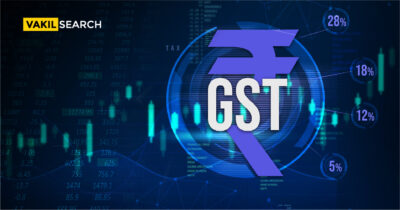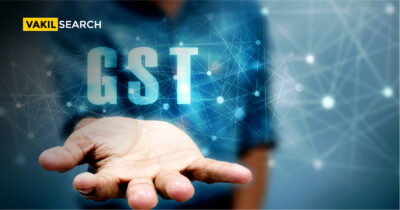Goods and Services Tax is referred to as GST. It is founded on the idea of "One Nation, One Tax." The GST reduces the price of goods and services by eliminating the cascading effect, also known as the tax on tax effect, on the sale of goods and services.
Initiation of the GST took place in 2000. GST didn’t go into force until 17 years had passed since then. The Parliament approved the Goods and Service Tax Act on March 29, 2017, and it became effective on July 1. The good news is that although personal loan prices have slightly increased, your EMIs won’t be considerably affected. Let’s talk about how GST on personal loan is calculated.
What is GST on Personal Loan?
GST, short for Goods and Service Tax, is an indirect tax the Indian Government introduced to replace old indirect taxes like excise duty, VAT, services tax, etc. GST is a multi-stage destination-based tax that the government levies on every value addition.
Before the Indian Government introduced GST on 1st July 2017, personal loans attracted a service tax of 15%. But with the introduction of the new system, GST on loans went up by 3%. So, borrowers availing of personal loans also bear the GST component of 18%.
The introduction of higher GST on loans has made personal loans more expensive than they were earlier. But still, personal loans are a better option to access additional funds without pledging collateral.’
How does GST Apply for a Loan?
GST does not apply to loans since, as its name suggests, it only applies to goods and services. However, in actuality, the GST only very slightly affects loans. This is because the bank or lender ends up providing the borrower with several taxable services during the loan disbursement procedure. Processing, foreclosure, and bounce costs are some of these services.
Previously, loans would include a complex web of taxes, significantly increasing the total cost. However, the procedure has improved dramatically since introducing the Goods and Services Tax. Find out more about how the GSTIN Registration Certificate is applied to various loan kinds.
Personal Loan With GST
- Since the introduction of the GST, a service tax of 18% has been applied to all services provided by banks and financial organizations. There are different ways by which it is possible to calculate GST on personal loan.
- If you were considering applying for one, you might have been curious about the GST on personal loans. Is the GST registration rate for personal loans expensive? Has there been a significant rise?
- The good news is that although personal loan prices have slightly increased, your EMIs won’t be considerably affected. To learn more, keep reading.
Breakdown of GST on Different Components of a Personal Loan
1. GST on Personal Loans’ Processing Fees
When a lender accepts a loan application, it bears some administrative costs. You pay the cost of sanctioning a loan in the form of loan processing charges. Since the processing of a loan is a financial institution’s service, the processing fee attracts a GST of 18%.
For instance, you borrow a personal loan of ₹ 1,00,000, and the processing fee is 4%. Then, the processing fee pre-tax amount will be ₹ 4,000. And it will attract a GST of 18%, i.e., ₹ 720. So, you will pay a processing fee of ₹ 4,720 after tax.’
2. GST on Personal Loans’ Prepayment Charges
Although a personal loan comes with a set repayment tenure, most lenders will allow borrowers to repay the loan in part or full early. In return, they charge a minor penalty called a prepayment fee. Loan prepayment is also a service that financial institutions offer, so the fee includes a GST component.
So, if a lender charges a prepayment fee of 3% on a personal loan of ₹ 1,00,000, it will amount to ₹ 3,000, and with GST at 18%, you will pay ₹ 3,540 as a prepayment fee in total.’
3. GST on Personal Loans’ Interest
Interest rate is the biggest factor influencing people’s decision to borrow personal loans from one lender over the other. So, what is GST’s impact on interest rates? – GST does not affect the interest you pay against your loans.
Unlike loan prepayment and processing, interest is not a service lenders offer borrowers. Instead, it is an amount that borrowers pay at a predetermined rate for the loan they avail. So, no GST is levied on the interest you pay on the personal loans.’
Effect of GST on Personal Loan
A personal loan is your 3 AM friend if you need money immediately for a home improvement, wedding, vacation, or another urgent financial requirement. Personal loans are helpful when you need cash now but want to pay it back later. We try to clarify how the government’s implementation of the Goods and Services Tax, or tax, will affect personal loans.
- Processor Charge
Lending institutions charge a processing fee for each loan they grant. Because personal loans are included in this group, borrowers must pay a processing fee.
- Advance Payment
Prepayment fees for personal loans are another sector subject to GST at 18%. This fee only applies if you prepay your loan in full, that is, before the term is up. This fee is calculated as a percentage of the outstanding personal loan balance or as the interest for a specified period of months. The personal loan prepayment fee determines the quantity of EMIs made. Beginning on July 1, 2017, all taxable supplies are subject to tax at the current rates that are in effect.
- EMI
Although the cost of a personal loan has somewhat increased, the borrower is not overly affected by the change in price. Thankfully, Tax has not applied to the EMI portion. tax does not directly impact personal loans. EMI because personal EMIs were formerly exempt from service tax and are currently exempt from GST. As a result, tax will not affect the EMI for personal loans.
How to lower the Rate on Personal loans?
GST paid on a personal loan is determined by processing and prepayment fees. Therefore, the easiest way to lower your GST is to obtain a loan with a lower processing charge or prepayment penalty. Comparing various loan offers will be beneficiate. It is advisable to keep an eye on the interest rate charged on a loan to strike a balance between all the charges related to a personal loan.
Pros and Cons of Goods and Service Tax on Loans
- Implementing the GST taxation system has reduced the cost of personal loans. The new legislation has produced low processing costs and prepayment fees. Following the previous tax laws, taxpayers are also exempt from paying numerous taxes.
- The net tax amount has increased by 3% due to the tax on personal loans, making your loans more expensive than they were previously.
Effect of GST on Pre-payment
Effect of tax on Prepayment/Foreclosure Charges The prepayment fees will also change. Prepayments during the pre-GST era are subject to fees of 2 percent to 5 percent of the remaining loan balance plus 15 percent service tax.
For example, if there is a loan balance of ₹2 lakhs, the prepayment fee would be ₹4,000–10,000 plus 15% service tax. The total will range from ₹4,600 to ₹11,500. However, as soon as GST is implemented, the same sum will increase to between ₹4,720 and ₹11,800.
Conclusion
The tax structure underwent considerable modifications once the Goods and Services Tax was implemented. It makes sense that borrowers are concerned about how the GST would affect personal loans and the extra costs it will bring. It is important to remember that GST on personal loans only applies to specific parts of your loan and has no bearing on the overall amount of your loan. Vakilsearch is a platform where you can look upto in case of any queries regarding GST or personal loan.
The additional expenses imposed by GST won’t appear excessive if you prudently pick a lender. Get a loan up to ₹20 lakh if you’re looking for a personal loan with affordable interest rates and flexible EMIs.
FAQs
Do I have to pay GST on a personal loan?
No, GST is not applicable to personal loans. Personal loans are considered financial transactions and are not subject to Goods and Services Tax (GST) in most jurisdictions. The interest charged on personal loans is typically the only financial obligation.
Is GST applicable on EMI?
Yes, GST is applicable on EMI (Equated Monthly Instalments) for certain goods and services. The rate and applicability depend on the nature of the transaction and the prevailing GST regulations. Loan EMIs, however, do not usually attract GST.
Why do banks charge GST on EMI?
Banks may charge GST on EMI for specific goods or services purchased through financing. This is because GST is applicable to the underlying transaction, and banks collect it as part of the instalment to comply with tax regulations.
Do monthly bank fees have GST?
Yes, monthly bank fees are often subject to GST. Banks charge GST on various services and fees as per the prevailing tax regulations. This includes charges for account maintenance, transaction fees, and other banking services.
What bank charges have GST?
Various bank charges, such as service charges, transaction fees, and account maintenance fees, may attract GST. The applicability and rate of GST on bank charges depend on the jurisdiction and the specific nature of the service for which the charges are levied.
What transactions are GST free?
Some transactions are exempt from GST, such as basic necessities like food items, certain healthcare services, and educational services. Additionally, financial transactions like personal loans and certain banking services may not attract GST. The exact list of GST-free transactions varies by jurisdiction and is governed by local tax laws.










